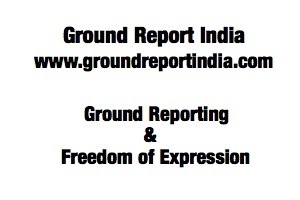/regions/india
India
India Water Portal looking for a Drupal consultant
Posted on 03 May, 2010 04:42 PMWe are currently seeking the services of a seasoned Drupal Reource (individual/company) to join our team. The Resource (individual/company) will serve as the chief technology consultant, assisting with the design, development, and implementation of changes to the portal related websites, including graphics and functionality.
An article on Ganga in Ground Report India by Dr. Amarnath Giri
Posted on 03 May, 2010 11:27 AM
Credits to: Ground Report India April-2010-Edition
Hindus have always believed that water from India's Ganges River has extraordinary powers. The Indian emperor Akbar called it the "water of immortality" and always traveled with a supply. The British East India Co. used only Ganges water on its ships during the three-month journey back to England, because it stayed "sweet and fresh."
Indians have always claimed it prevents diseases, but are the claims wives' tales or do they have scientific substance?
Bihar needs to build 6,900 toilets a day to keep promise of total sanitation - A survey report by WaterAid (2009)
Posted on 01 May, 2010 04:51 PMThis brief report highlights the findings of an evaluation study conducted by WaterAid, India of the Total Sanitation Campaign (TSC), a national programme in India that ensures sanitation facilities in rural areas to eradicate open defecation. The study was conducted in the five states of Bihar, Chhattisgarh, Tripura, Karnataka and Haryana. This document highlights the findings of the evaluation study in the state of Bihar.
Robust watershed modeling options for participative governance - A Water Governance Project review paper
Posted on 30 Apr, 2010 06:01 PMThis technical review paper puts forward robust watershed modeling options as an instrument of participative governance in the water sector, where there is common agreement among stakeholders on assessment of resource and on the manner in which it is to be utilized. Reasonably validated estimates are developed based on existing data and different scenarios are explored. The models offer a scope of assessing the potential changes in watershed hydrology and water availability due to watershed development projects, and can be used as a basis for planning and monitoring.
Capacity Building for Integrated Water Resources Management (Cap-Net) - United Nations Development Programme (UNDP)
Posted on 30 Apr, 2010 11:47 AM![]() Cap-Net is an international network for capacity building in Integrated Water Resources Management (IWRM). It includes a partnership of autonomous international, regional and national institutions and networks committed to capacity building in the water sector.
Cap-Net is an international network for capacity building in Integrated Water Resources Management (IWRM). It includes a partnership of autonomous international, regional and national institutions and networks committed to capacity building in the water sector.
The Cap-Net website has a number of resources on water management issues and includes:
Eye of the storm: Integrated solutions to the climate, agriculture and water crisis - A brief by IATP
Posted on 28 Apr, 2010 08:20 PMThis brief by Institute for Agriculture and Trade Policy (IATP) acknowledges that climate, water and agriculture are the three important factors that are facing severe crisis in recent years and argues that it is necessary to recognise that these three factors cannot be viewed in isolation, but as converging, interdependent and interconnected factors.
The convergence of these three factors means that solutions to the crisis cannot be found in isolation, but need to be complementary, that move away from dominant industrial agricultural models, to models that are sustainable and just.
Jobs via Devnetjobs - dated 27 April, 2010
Posted on 27 Apr, 2010 04:15 PM- Programme Officer Research and Media Relations
WaterAid India
Location: New Delhi
Last Date: May 10, 2010
Need for a water meter for every flat in an apartment
Posted on 25 Apr, 2010 10:56 AMBy providing separate water meter to each flat at apartments, wastage of water which is being now observed can be avoided and WATER can very well be saved at each minute each day!
PRESENT SITUATION.
Impact of electricity prices and volumetric water allocation on energy and groundwater demand management
Posted on 22 Apr, 2010 07:53 PMThis paper introduces a theoretical model to examine farmers’ response to changes in power tariff and water allocation regimes vis-a-vis energy and groundwater use. The author begins by explaining the context as one where the existing direct & indirect regulations and direct management interventions have been ineffective in arresting groundwater depletion. Also, there is an absolute paucity of sufficient empirical data to compare and analyze the differential impacts of different levels of pricing of electricity, and groundwater rights allocations on water and energy productivity.
The paper presents a review of farm sector pricing theories and thereafter analyses the potential impact of different modes of electricity pricing on productivity of groundwater use.
Rainwater filtration from large roofs in polluted environments to potable quality
Posted on 21 Apr, 2010 05:25 PMIs there anyone in India who is willing to develop a multi-stage Saferain unit with me?
Imagine a 5000 sq metre factory in New Delhi, (or Shanghai, or wherever).
The air is polluted, the roof is polluted, and, yet, I say that potable. or near so, can be delivered in a rain event. The following is a cut and paste. This is how it's